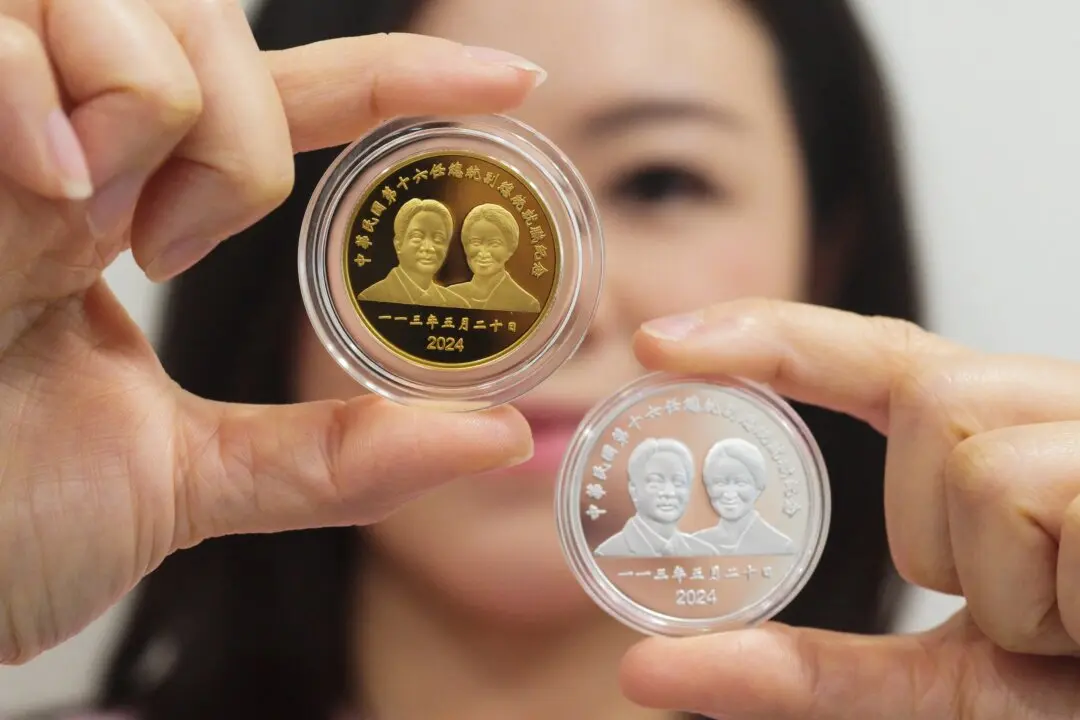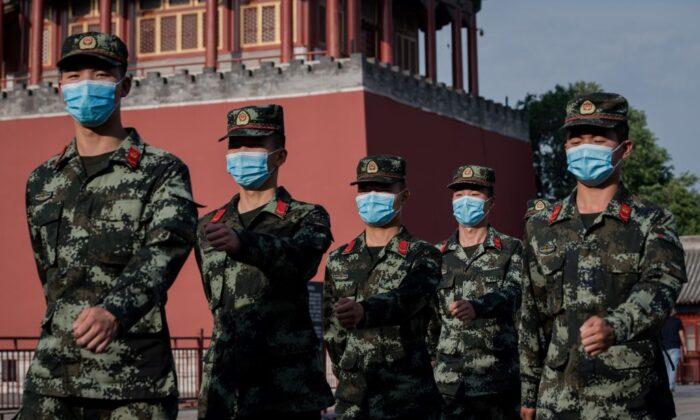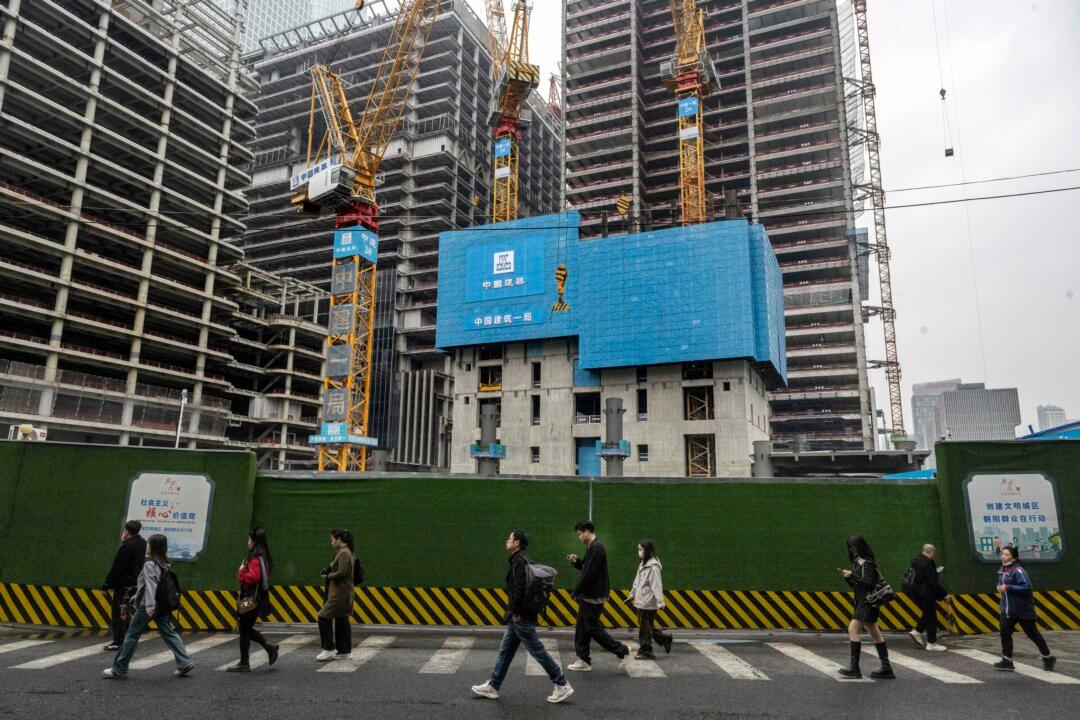News Analysis
Beijing struggles to maintain economic growth.
The Chinese Communist Party (CCP) claims to have achieved 8.1 percent GDP growth last year, in spite of fourth quarter growth only hitting 4 percent. This year, Beijing faces reduced demand, supply chain disruption, and tight credit, as well as a lack of consumer and business confidence.
In order to rein in the real estate sector, the CCP has curtailed available credit, driving down new housing starts and real estate sales. Decreased demand for houses has left developers short of cash, threatening bond repayments. Reduced liquidity, combined with diminished consumption, sporadic lockdowns, and increased borrowing costs have had a negative effect on the rest of the economy.
Consequently, after two years of economic disruptions, Chinese citizens are either broke or lack the confidence to spend, as they face yet another year, plagued by uncertainty.
Evergrande, the severely indebted property developer, has become a massive Ponzi scheme with the company signing a firm pledge to complete construction on 1.6 million of presold apartments. In order to raise capital for this construction, Evergrande needs to presell other apartments or borrow more money.
And Evergrande is just one of many struggling developers. Kaisa Group, China Aoyuan Property Group, and Fantasia, among others, are also scrambling to make bond payments, destroying investor confidence.
As a result of lower sales and increasing materials costs, many small businesses have closed down. A decimated tourism sector, as well as crackdowns on the tech, education, and other sectors have caused widespread layoffs with unemployment rising to 5.1 percent by the end of 2021. This is particularly true of the private sector, which comprises about 60 percent of the economy.
Due to new CCP regulations and a restrictive credit regimen, local governments have been unable to sell land, which normally accounts for most of their income, as well as about 7 percent of China’s GDP. Short of capital and plagued with debt, local governments have cut the salaries of civil servants by as much as 25 percent. They have also increased fines imposed on small businesses by up to 11 times, putting a further strain on the private sector.
In spite of so many obvious problems, the CCP claims that the Chinese economy is growing at an impressive rate. Bo Zhuang, a China economist at Boston-based investment management firm Loomis Sayles, told Insider that several of China’s economic indices may have been exaggerated. Last year’s growth figure of 8.1 percent, for example, may have been inflated, with the real number most likely being closer to 5.5 percent to 6 percent.
Another misleading data point is the 5.1 percent unemployment rate, which excludes migrant workers and those out of the job market for three months or longer. Consequently, the real jobless number could be much higher. Additionally, working hours have increased, to at least 9.5 hours per day, while incomes have decreased.
To make matters worse, the birthrate in China hit a record low last year. An aging population and a shrinking workforce will make it difficult to pull China’s economy out of decline.
The 4 percent growth in the final quarter of last year was below the CCP’s tolerance level of 5 percent. An economic slowdown is always problematic for the CCP, which promises to provide prosperity for the populace. Many of Xi Jinping’s crackdowns were aimed at decreasing income inequality, but have had the opposite effect, decreasing the incomes of millions of families. GDP growth is one of the main indicators against which his efficacy as a leader is measured. As Xi pushes for a third term, he needs to keep the GDP growth above 5 percent. For this reason, he is promoting expansionary policies.
The CCP has promised tax cuts, while local government bond issues have increased. And the People’s Bank of China (PBOC) lowered the rate at which it loans money to banks by 10 basis points, the first reduction in two years. So far, the PBOC introduced about $110 billion of cash into the economy. Bruce Pang, head of macro and strategy research at China Renaissance Securities Hong Kong, told Bloomberg that he expects the bank reserve ratio to be cut by 100 basis points in the near future.
Faced with a slowing economy and a rising pandemic, Xi’s policies seem to conflict with one another. On the one hand, Beijing is taking steps to promote growth by loosening credit and increasing liquidity. On the other hand, China is also expected to keep its “zero-COVID” policy, ahead of the Winter Olympics. With lockdowns and quarantines increasing, and ship congestion at ports worsening, economic recovery does not seem imminent.
Views expressed in this article are opinions of the author and do not necessarily reflect the views of The Epoch Times.





